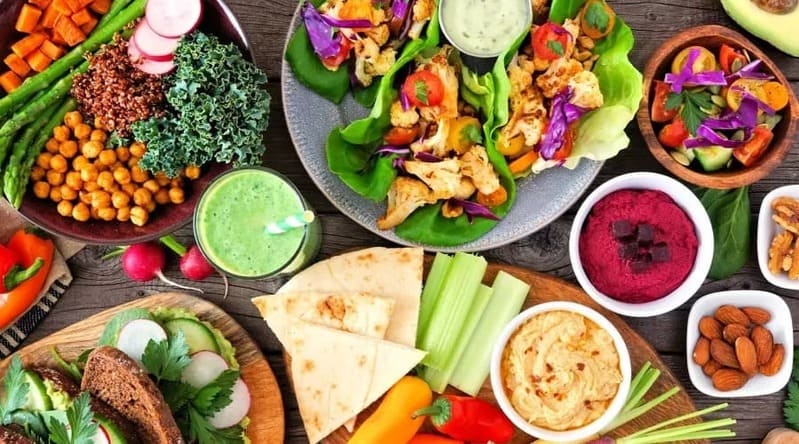Every year, as Nutrition Week arrives, we are reminded of something we often overlook in our busy routines, the food we eat. We think of meals as daily necessities, but in reality, food is the foundation of our health. It is not just about filling the stomach; it is about nourishing the body, protecting it from disease, and keeping it strong at every stage of life. Nutrition Week is more than an awareness campaign; it is a call to rethink how we eat, what we eat, and whether the food we eat is even safe.
When we talk about nutrition, many people immediately think of calories, fats, or carbohydrates. But good nutrition goes far beyond numbers. It is about balance. A plate that includes proteins, vitamins, minerals, healthy fats, and carbohydrates in the right proportion is what gives us energy, immunity, and long-term well-being. Children need nutrition for growth, to strengthen bones, build muscles, and boost brain power. Adults need it to fuel productivity, keep stress at bay, and fight lifestyle-related illnesses such as diabetes and heart disease. For the elderly, nutrition becomes a shield against infections, weakness, and loss of strength. Simply put, good food is the thread that connects health across every generation.
Food adulteration – The silent danger
However, there is a silent danger that threatens the very nutrition we hope to get due to food adulteration and unsafe food practices. In recent years, adulteration has become so common in India that it often goes unnoticed. Milk mixed with detergent or starch, spices laced with harmful colors, fruits ripened with toxic chemicals, and cooking oil diluted with cheaper substitutes are not rare cases. They are everyday risks. Imagine giving a child milk for strong bones, only to realize it has been tampered with. Or eating fresh vegetables for iron and vitamins, only to learn they carry pesticide residues. What we think is nutrition can sometimes be nothing more than poison in disguise.
Why safe eating is necessary?
That is why Nutrition Week is not only about healthy eating but also about safe eating. A balanced diet has no meaning if the food itself is unsafe. The problem is especially concerning because every age group is at risk in different ways. Children, for instance, are naturally attracted to bright-colored sweets, chips, and packaged snacks. Unfortunately, many of these foods hide excessive sugar, salt, artificial flavors, and sometimes even harmful dyes. Parents who believe they are giving their children treats may unknowingly expose them to long-term health issues. The elderly face another type of challenge. Their immune systems are weaker, and even a mild case of food poisoning caused by contaminated grains, stale bread, or unhygienic street food can turn dangerous.
Nutrition and food safety go hand in hand
Adults, on the other hand, often ignore nutrition altogether, surviving on instant noodles, fast food, or packaged snacks while chasing deadlines. Even when they try to eat healthy, they may not think about where the food is coming from and whether it is free from adulteration. The truth is, nutrition and food safety go hand in hand. Adults cannot rely on crash diets or supplements alone; they need fresh, safe, and wholesome meals. Children cannot grow strong on junk disguised as food. The elderly cannot maintain strength on stale or contaminated meals.
Nutrition Week, therefore, is an opportunity for all of us to reflect on our daily food choices. Are we buying food because it is cheap or because it is safe? Are we cooking meals that are balanced, or simply convenient? Are we teaching children to value nutrition, or letting them learn that taste is more important than health?
Simple steps to ensuring food safety
Simple steps can make a big difference. Washing fruits and vegetables thoroughly, choosing fresh produce over artificially colored ones, checking expiry dates on packaged foods, and trusting local vendors who follow safe practices are habits that build a culture of safe nutrition. At the same time, awareness matters. Families should talk about food safety at the dinner table. Schools should educate children not just about vitamins but also about the dangers of junk food and adulteration. Communities should demand stricter food quality checks. After all, what is the point of talking about proteins and vitamins if the food itself is not safe to eat?
Nutrition Week is not about temporary diet changes or slogans; it is about building habits that last all year long. It reminds us that nutrition is not just about what looks good on the plate, it is about trust. Trust that the milk we drink is pure, the grains we cook are clean, the oil we use is not diluted, and the food we give our children is truly nourishing. Real nutrition begins long before the first bite; it begins at the market, with the choices we make and the awareness we carry.
Conclusion
As this Nutrition Week just went by, let us use it as an opportunity to reset. Let us choose fresh over packaged, natural over artificial, and safe over suspicious. Let us make sure the food we eat builds us up rather than breaks us down. Because in the end, true nutrition is not just about eating, it is about eating right, eating safe, and eating with awareness. That is the lesson Nutrition Week was here to teach, and it is one we should carry with us every single day.
Views of the author are personal and do not necessarily represent the website’s views.

Author of the above article is , Mr Ashwin Bhadri, Founder and CEO of Equinox Labs. Mr Bhadri is a national-level speaker on the subject of Food Safety. He is also a national resource for the FSSAI, the body that is responsible for regulation in the food industry in India. He has spoken on Food Safety, FSSAI, Hygiene, HACCP, and food companies using Science and Technology to enhance their businesses. He also has well-documented conversations with the founders of established businesses. He is a serial entrepreneur and deeply believes in continuous learning. He makes it a point to learn a new thing daily, irrespective of how small it might be. He also encourages open communication and leadership and speaks in a powerful yet simple manner.
Disclaimer: This media release is auto-generated. The CSR Journal is not responsible for the content.


